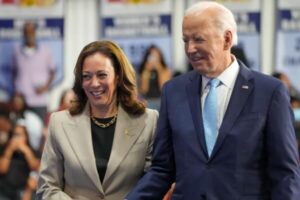FHA Extends Program that Allows Quick ‘Flips’ of Properties
As the nation continues to wrestle with high unemployment rates and a recuperating real estate market, the Federal Housing Administration (FHA) decided to continue one of its popular programs.
The FHA extended its temporary waiver allowing loans on quick “flips” of renovated properties past its scheduled Dec. 31 expiration. Real estate flipping is a type of investment in which a person purchases an undervalued property and resells it quickly for profit. Typically, the process involves home improvements.
Temporary FHA Waiver Will Remain
The FHA in 2003 stopped insuring certain mortgage loans on properties after large cities like Los Angeles, New York, Baltimore and Washington, D.C., witnessed fraudulent property flips. Homes were sometimes sold for double their purchase price within days or even hours.
The FHA then opted to require sellers to own the home for at least 90 days before selling.
In February 2010, the Obama administration reversed these restrictions of resale to keep neighborhoods and the U.S. housing market moving in the right direction.
Over the years, the less-restrictive policy encouraged a large number of investors from all economic backgrounds to purchase foreclosed and homes in disrepair from lenders, to fix them up and then to resell them for profit within a short amount of time.
Since then, more than 65,000 renovated homes have been financed using more than $11 billion in FHA-backed loans since that time, federal officials said. An estimated 23,000 properties were resold with FHA loans in the past year.
How FHA Loans Helped American Communities
The FHA is the largest insurer of mortgages in the world, providing insurance on loans made by FHA-approved lenders throughout the country since 1934. It has insured more than 34 million single- and multifamily homes as well as manufactured houses and hospitals since its inception.
Acting FHA Commissioner Carol J. Galante said the plan allows the stabilization of real estate prices as well as neighborhoods and communities affected by foreclosure. It also permits investors to buy, renovate and sell rundown homes that, if left untouched, would have further depressed values and added to urban blight.
The typical buyers of the renovated properties are first-time, moderate-income families that may not otherwise have the down payment required for a conventional loan. FHA down payments can be as minimal as 3.5 percent, compared with the 20 percent often required with a conventional loan.
FHA Will Retain Strict Controls
While the restrictions regarding resale time have been relaxed over the years, the FHA plans to retain strict controls on several aspects of the purchase, from appraisals and inspections to chain of title, to ensure the loans extended are above board.
For example, FHA policy restricts any personal interest between the parties involved to include the buyer, seller, renovator and the appraiser. The seller of the renovated house also must have clear legal title to it.
In addition, if the selling price is 20 percent more than what the purchaser paid, then a second appraisal must be done by a FHA-approved appraiser to validate the increase in price. An independent inspection report also must be completed if there is a 20 percent increase to ensure no additional repairs are needed that could affect the health and safety of the buyer.
Federal Committee to Support Economic Recovery
In an effort to strengthen the American market, the Federal Open Market Committee (voted last week voted to continue its program of buying $40 million of mortgage-backed securities per month and to keep the target Fed Funds rate at 0 to 0.25 percent. The FOMC is a committee within the Federal Reserve System that oversees the nation’s open market operations.
“This exceptionally low range for the federal funds rate will be appropriate at least as long as the unemployment rate remains above 6-1/2 percent [and] inflation [is] between one and two years ahead is projected to be no more than a half percentage point above the Committee’s 2 percent longer-run goal,” the Federal Reserve said in a news release. “When the Committee decides to begin to remove policy accommodation, it will take a balanced approach consistent with its longer-run goals of maximum employment and inflation of 2 percent.”
The targets are not anticipated to be met until 2015.
The FOMC also said it will keep its policy of reinvesting principal payments from its holdings of agency debt and agency mortgage-backed securities, and will recommence rolling over maturing Treasury securities at auction in the new year.
Sources:
- Harney, K. (2012, December 16). FHA to extend rule permitting loans on 'flips' of fixed-up homes. Los Angeles Times. Retrieved from http://www.latimes.com/business/realestate/la-fi-harney-20121216,0,7259629.story
- Liberman, M. (2012, December 12). FOMC Ties Fed Funds to Unemployment Rate. The M Report. Retrieved from http://www.themreport.com/articles/fomc-maintains-policy-stance-to-hold-down-rates-2012-12-12
- The Federal Reserve. (2012, December 12). 2012 Monetary Policy Releases [Press release]. Retrieved from http://www.federalreserve.gov/newsevents/press/monetary/20121212a.htm


















